
Audre Lorde was an American writer, professor, philosopher, intersectional feminist, poet and civil rights activist. She was a self-described "black, lesbian, feminist, socialist, mother, warrior, poet," who dedicated her life and talents to confronting all forms of injustice, as she believed there could be "no hierarchy of oppressions".

Brothers Keepers is a German-based transnational anti-racism project, bringing together hip hop, reggae and soul musicians, headed primarily by Afro-Germans. Their debut single, "Adriano-Letzte Warnung", was written in response to the murder of Alberto Adriano by Neo-Nazis. It remains their most popular release, with more than 6 million views on YouTube.
Afro-Germans or Black Germans are people of Sub-Saharan African descent who are citizens or residents of Germany.
Katharina Rutschky was a German educationalist and author. She coined the term Schwarze Pädagogik in her eponymous book from 1977, describing physical and psychical violence as part of education. Until her death, Rutschky lived with her husband Michael Rutschky in Berlin.

May Ayim is the pen name of May Opitz ; she was an Afro-German poet, educator, and activist. The child of a German dancer and Ghanaian medical student, she lived with a white German foster family when young. After reconnecting with her father and his family in Ghana, in 1992 she took his surname for a pen name.
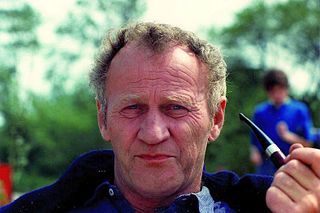
Max von der Grün was a German novelist.
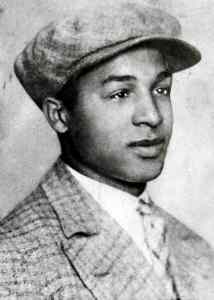
Hilarius Gilges was a German actor, dancer and communist political activist. He was murdered at the age of 24 by the Nazis.
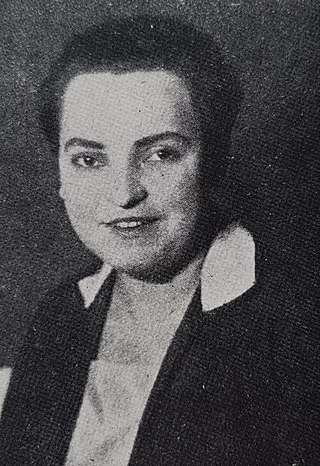
Selma "Selli" Engler was a leading activist of the lesbian movement in Berlin from about 1924 to 1931.
Showing Our Colors: Afro-German Women Speak Out is an English translation of the German book Farbe bekennen edited by author May Ayim, Katharina Oguntoye, and Dagmar Schultz. It is the first published book by Afro-Germans. It is the first written use of the term Afro-German. A compilation of texts, testimonials and other secondary sources, the collection brings to life the stories of black German women living amid racism, sexism and other institutional constraints in Germany. The book draws on themes and motifs prevalent in Germany from the earliest colonial interactions between Germany and black "otherness," up through the lived experiences of black German women in the 1980s. It was groundbreaking not only for the degree to which it examined the Afro-German experience, which had been generally ignored in the larger popular discourse, but also as a forum for women to have a voice in constructing this narrative. The book also acted as a source for these Afro-German women to have a platform where their stories can be heard. The stories that were told helped the development of an Afro-German community as a common theme throughout Showing Our Colors was the idea of feeling alone and as though there was no one to relate to. The discussion of this loss of connection to others helped Afro-Germans come together and unite.
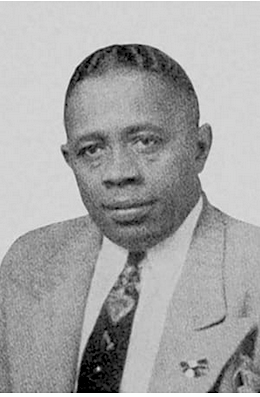
Bayume Mohamed Husen was an Afro-German soldier, actor and victim of Nazi persecution.
Erika "Ika" Hügel-Marshall was a German author and activist. She was active in the Afro-German women's movement organization ADEFRA. Her autobiography, Daheim unterwegs. Ein deutsches Leben, discusses racism in Germany and her search for a family identity. She was influenced by and praised the work of her friend, American activist Audre Lorde. She and her partner Dagmar Schultz worked with Lorde.

Sharon Dodua Otoo is a British writer, publicist and activist. In 2016, Otoo was awarded the Ingeborg Bachmann Prize for her first short story in the German language.

Dagmar Enkelmann is a German politician of Die Linke party.
Dagmar Schultz is a German sociologist, filmmaker, publisher and professor.
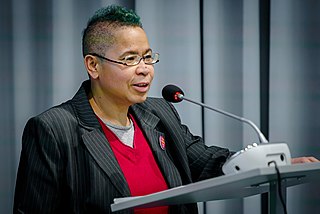
Peggy Piesche is a German literary and cultural scientist, works in adult education and works as a consultant for diversity, intersectionality and decoloniality in the Bundeszentrale für politische Bildung. Peggy Piesche is one of the most famous voices of Black women in Germany. Her identities also include lesbian.
Bärbel Kampmann was an Afro-German psychologist, writer, and civil servant. A well-known anti-racist activist in Germany, she led innovative integration programs in the German state of North Rhine-Westphalia that served as a model for the rest of the country.

Generation ADEFRA – Schwarze Frauen in Deutschland is a Berlin-based German cultural and political organization for Black women and other women of color. Founded in 1986, it is considered the first grassroots activist group for Afro-German women.

In Nazi Germany, lesbians who were sent to concentration camps were often categorized as "asocial", if they had not been otherwise targeted based on their ethnicity or political stances. Female homosexuality was criminalized in Austria, but not other parts of Nazi Germany. Because of the relative lack of interest of the Nazi state in female homosexuality compared to male homosexuality, there are fewer sources to document the situations of lesbians in Nazi Germany.
Fasia Jansen was a German political singer-songwriter (Liedermacher) and peace activist.
Ursula Sillge is a German sociologist and LGBT activist. She organized the first national lesbian gathering in East Germany, and between 1970 and 1990 was one of the main lesbian activists in the country, pressing authorities to recognize the rights and allow visibility of the LGBT community. In 1986, she founded the Sunday Club in Berlin. It was the only secular association representing homosexuals in the 1980s, though it was not officially recognized. The organization became the first legal association to represent the LGBT community in East Germany when it was allowed to register in 1990. Sillge resigned as director of the Sunday Club in 1991 to found the LGBT archive known as the Lila Women's Archives. After the fall of the Berlin Wall, she was able to earn her doctorate. In addition to running the archives, she has published several works about homosexuality and women behind the Iron Curtain.












